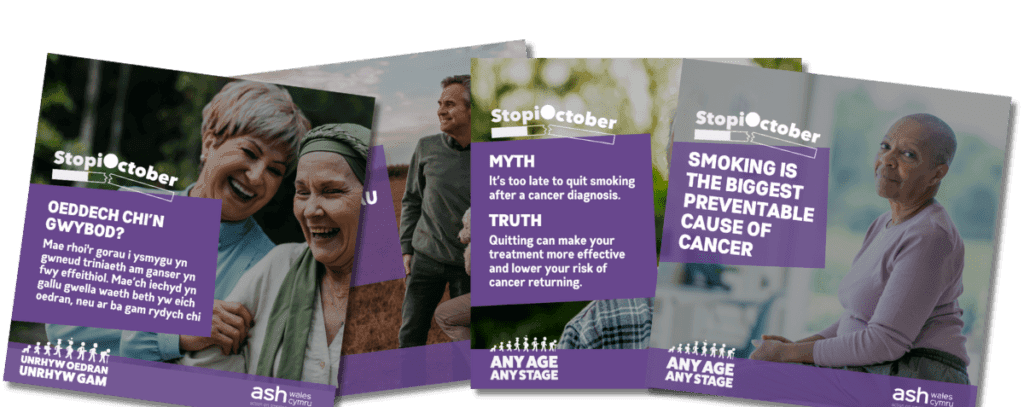
Tiffany, 54, has lived in Cardiff all her life and now calls Llanishen home. She works as a …
Tiffany, 54, has lived in Cardiff all her life and now calls Llanishen home. She works as a …
John Weatherbed from Newport was just 14 years old when he smoked his first cigarette. Like many people …
The Senedd has voted to support the Legislative Consent Motion for the Tobacco and Vapes Bill, marking a …
The Wales Tobacco Control Alliance is calling on Members of the Senedd to back the Legislative Consent Motion …
New findings from ASH Wales’ Annual Adult Population Survey 2025 show strong public support for tougher tobacco laws …
Parents and carers across Wales are facing new challenges when it comes to nicotine. Whether it’s disposable vapes, …

his October, join thousands across the UK in making the decision to quit smoking. No matter your age or how long you’ve smoked, quitting can transform your health, finances, and wellbeing. The theme for StopiOctober 2024, Any Age, Any Stage, encourages everyone to begin their quit journey, whether you’re in your 20s or 70s—it’s never too late to start living smoke-free.
It’s never too early—or too late—to make the life-changing decision to quit smoking. Whether you’re in your 20s or your 70s, stopping smoking will make a profound difference to your health. Within minutes of quitting, your body begins to recover, and the long-term benefits multiply over time.

Help spread the word by using our 2024 Digital Resources Pack. It contains shareable content to inspire and guide people on their quit journey. Together, we can help more people access the support they need.
Support our campaigns to protect the environment from smoking-related harm and to provide education in schools and communities.
